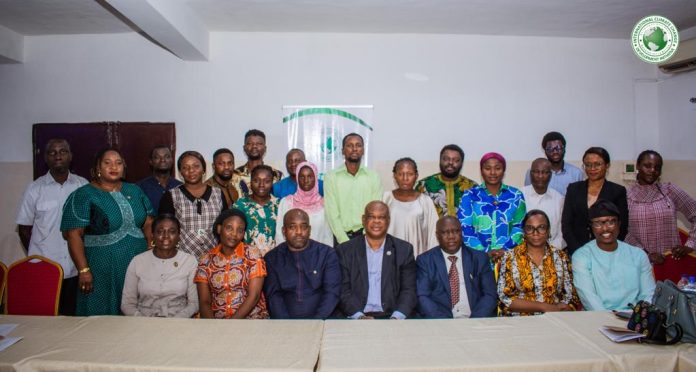Stakeholders outline key mitigation measures for methane emission at the ICCDI Africa workshop
Furthering the efforts to deepen stakeholders’ knowledge of the threats of mostly ignored fugitive gas emissions containing methane in Nigerian communities, the International Climate Change Development Initiative (ICCDI) Africa organized a one-day capacity-building workshop in Lagos.
The learning session, tagged “Capacity Building Workshop on Methane Emission Prevention in Nigeria” had key stakeholders across public, private, and not-for-profit organizations and the media in attendance.
Speaking on the essence of the workshop, the executive co-ordinator at ICCDI Africa, Olumide Idowu noted that it was in a bid to bring the attention of Nigerians and key stakeholders to the threats being imposed by emission of methane gas in communities across Nigeria as well as sharing possible practical mitigation approaches to harnessing the benefits of the gas.
“If you notice that, across Nigeria, there is a lot of talking about solid waste and we see that it’s not only the solid waste conversation that is causing the emission that we see. So we decided to explain what is happening with the methane emission that comes from the organic waste and that is what actually informed this workshop”, Idowu explained.
Idowu noted the reason ICCDI Africa came up with the workshop is to help participants understand what stakeholders are doing and to also give some sort of solution to where we can see in the future.
Commenting on the expectations from the capacity building, he noted: “One of the biggest expectations is that we are able to invite some key government officials to actually come and tell us what is going on, like Minister of Energy, Minister of Environment.”
“We also have different stakeholders and resource persons from the private sector, who were actually able to explain to us what we need to be looking out for”, he said.
In his keynote presentation entitled: “Highlighting the Global Significance of Addressing Methane Emission and the Potential Benefits for Nigeria”, the Managing Director of Carbon Limits Nigeria, James Ogunleye, shared practical approaches and benefits of tapping into the opportunities in methane emission reduction across Nigeria.
He noted that the length of time methane stays in the atmosphere is very high compared to Co2 and it is a more potent GHG than Co2 considering its impact over a 20-year timeframe.
“For me, the practical approach is to strengthen our regulations and policies. It is satisfactory to see what steps the federal government and state governments are taking. I am also looking forward to seeing Lagos being more proactive”, he noted,
He also noted that the government has to be deliberate with international collaborations on this aspect to be able to get carbon credits.
“Reducing methane emissions will have an impact and it is of course critical if we have to keep the world’s temperature above the 1.5 degrees Celsius threshold”, he noted.
The Director of Climate Change and Environmental Planning, Lagos State Ministry of Environment and Water Resources, Bankole Michael, revealed efforts of the Lagos State government to harness the potential of methane gas in Lagos communities while reducing the environmental risks associated.
He noted that the need to effect methane emission reduction would result in mitigation of the challenges of climate change, protecting public health, and ensuring future sustainability measures in Nigeria.
“We also talk about improved waste management practices, in our Climate Action Plan 2021, we spoke seriously about policies for private, and PSP operators and the utilization of high technology for methane capture. If we must capture methane, we must look at improving our waste management practices, we must do waste segregation, utilize our organic waste better than what we are doing today”, the director pointed out.
“We must also reduce landfilling and restructure the value chain of waste management and waste collection compliance” he added.
In his remarks, the Chairman of the Lagos Recycling Association (LAGRA), Dr. Femi Idowu-Adegoke, said that all stakeholders need to start taking responsibility as waste managers by providing mitigating solutions across the waste value chain.
Dr. Idowu-Adegoke who is the executive director at Ecoviridis Environmental Technology Ltd. also advised that everyone needs to learn to redirect the hierarchy of waste management from reduction to prevention, which ranks highest in the order of; prevention, reuse, recycling, recovery, and disposal.
“So if we have a proper landfill-engineered site, we can actually maximize the result in our organic waste management or energy generation. This is because if this methane gas is not properly captured, it becomes dangerous to our health”
“Waste is a resource, and like every other resource, it has a value. That means a sustainable solid waste management system is needed to deliver that value”, Dr. Idowu-Adegoke noted.
Do you want to share your impact stories or pitch the coverage of your CSR event to us? E-mail: editor@impactwatch.net or *Phone +234-806-795-0250 (Whatsapp &Text)





